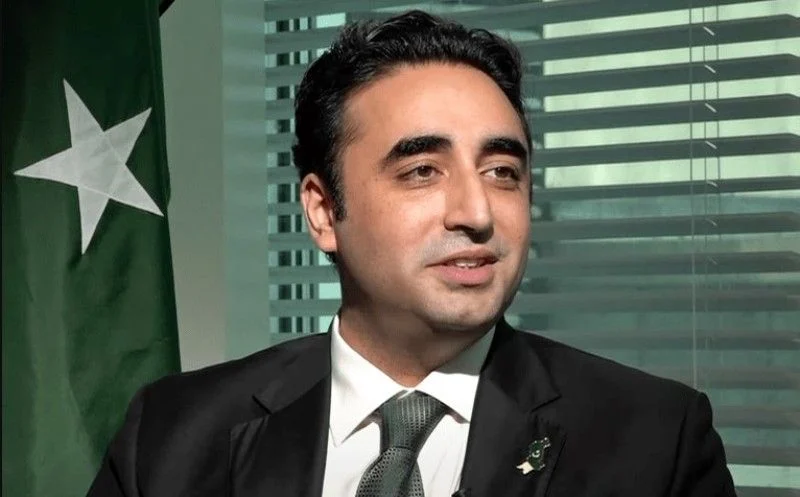
Pakistan’s role in global geopolitics has evolved into a dangerous paradox — it is a state that operates like a zombie, neither fully alive nor fully dead. On the one hand, it continues to thrive with the help of external aid, nuclear weapons, and strategic alliances, but on the other, it is rotting from within. The source of this decay? A dangerous reliance on state-sponsored terrorism and an unwillingness to adhere to global norms. But how exactly does this affect India, and what are the global implications of Pakistan’s behavior?
Let’s take a closer look at why Pakistan has become a “zombie state” and the far-reaching consequences of its actions.
Pakistan’s State-Sponsored Terrorism
State-sponsored terrorism is not a new phenomenon in Pakistan’s foreign policy. For decades, Pakistan has been accused of using terrorism as a tool of strategic policy, particularly against India. This policy is supported by Pakistan’s military and intelligence agency, the Inter-Services Intelligence (ISI), which is known to fund and train terrorist organizations like Lashkar-e-Taiba (LeT) and Jaish-e-Mohammed (JeM). These groups have been behind some of the most horrific terror attacks in India, such as the 2001 Indian Parliament attack, the 2008 Mumbai attacks, and the more recent attack in Pahalgam in April 2025.
Despite overwhelming evidence pointing to Pakistani involvement in these attacks, Pakistan has consistently denied its role and allowed these groups to operate from its soil. The question arises: why does Pakistan continue this path of supporting terrorism? The answer lies in its strategy of using terrorism as a tool to destabilize India while maintaining plausible deniability. With its nuclear arsenal acting as a deterrent, Pakistan feels emboldened to continue supporting terror without facing severe international consequences.
The Nuclear Shield: Pakistan’s Unstable Power
While nuclear weapons are often viewed as a force for peace through deterrence, in Pakistan’s case, they’ve been used as a shield to deflect international pressure and as a weapon of blackmail. Unlike India, which has voluntarily placed its civilian nuclear reactors under International Atomic Energy Agency (IAEA) safeguards, Pakistan remains outside the global nuclear governance system. It has not signed the Nuclear Non-Proliferation Treaty (NPT), the Comprehensive Nuclear-Test-Ban Treaty (CTBT), or the Fissile Material Cut-Off Treaty (FMCT).
This nuclear arsenal gives Pakistan a dangerous sense of invulnerability. In the aftermath of the Kargil War in 1999, and more recently, after the 2001 Parliament attack and the 2008 Mumbai attacks, Pakistan has relied on the threat of nuclear retaliation to avoid a strong conventional response from India. This nuclear blackmail prevents India from taking effective military action against Pakistan’s sponsorship of terrorism, thus providing Pakistan with a “strategic impunity.”
For India, this creates a paradoxical security situation. While India wants to punish Pakistan for its involvement in terrorism, the nuclear threat looms large, making any military action a high-risk endeavor. The result is that Pakistan feels it can continue to support terror as a state policy with little fear of reprisal. This situation has been labeled the “nuclearization of terror” — a frightening dynamic where terrorism is not just a weapon in the hands of non-state actors, but also one wielded by a nuclear-armed state.
Economic Fragility and Military Dominance
Another defining characteristic of a “zombie state” is economic instability, and Pakistan is a textbook example. Pakistan’s economy is teetering on the brink of collapse, largely due to decades of mismanagement, corruption, and military dominance. Its economy relies heavily on foreign aid, with repeated bailouts from the International Monetary Fund (IMF), China, and Gulf monarchies just to stay afloat.
The country’s public debt is over 80% of its Gross Domestic Product (GDP), and Pakistan spends more on debt servicing than on essential services like health, education, and development. At the same time, the military controls vast swathes of the economy through military-run businesses and foundations, making it nearly impossible for the government to institute meaningful reforms.
Pakistan’s dependence on foreign aid, particularly from China, further complicates its economic picture. The China-Pakistan Economic Corridor (CPEC), which was meant to bring economic growth, has turned into a debt trap. Pakistan owes China more than $30 billion, much of it under opaque terms. The worry is that, like Sri Lanka’s Hambantota Port, Pakistan could face the risk of its national assets being seized by China if it fails to repay these loans.
Instead of using its economic troubles to push for internal reform, Pakistan has turned its economic fragility into a bargaining chip. It plays on the international community’s fear that a collapse in Pakistan could lead to regional instability, especially given its nuclear capabilities. This form of economic blackmail ensures that Pakistan gets the aid it needs to survive, but it also perpetuates a cycle of dependency and instability.
Diplomatic Isolation: A Global Pariah
Pakistan’s support for terrorism and its reliance on nuclear weapons have led to its increasing diplomatic isolation. It has squandered relationships with major international powers and is now struggling to find a place in global diplomacy. The United States, once a key ally in the war on terror, has grown frustrated with Pakistan’s double-dealing. Pakistan’s support for groups like the Taliban, while taking billions in U.S. aid, led to a breakdown in trust.
Similarly, Pakistan’s relations with Saudi Arabia and other Gulf states have been strained, particularly as Saudi Arabia has moved closer to India and other regional players. Even Pakistan’s relationship with China, while economically strong, is seen as a strategic burden, as it further isolates Pakistan from the West.
Pakistan’s advocacy for Kashmir at international forums has also failed to gain traction. Its rhetoric on Kashmir has grown shriller, but the international community, especially Western powers, have largely ignored its pleas, seeing Pakistan as a source of instability rather than a reliable partner.
Global Implications of a Zombie State
Pakistan’s behavior as a zombie state has significant implications for regional and global security. Its support for terrorism, nuclear blackmail, and economic fragility make it a ticking time bomb. While the world continues to prop up Pakistan with foreign aid, there are growing calls for accountability. The current approach of tolerating Pakistan’s rogue behavior due to its strategic location and nuclear capabilities is unsustainable.
The international community must impose stricter measures to ensure that Pakistan is held accountable for its actions. Sanctions on military institutions, greater scrutiny of its nuclear program, and conditional aid that demands real reforms are all steps in the right direction.
For India, the solution lies in strengthening its military deterrence and pursuing diplomatic channels to isolate Pakistan further. The world, too, must recognize that allowing Pakistan to continue down its current path puts everyone at risk.
Conclusion: The Path Forward
Pakistan remains a rogue state with the potential to destabilize not just South Asia, but the entire world. Unless its internal rot is addressed — including its sponsorship of terrorism, its nuclear blackmail, and its economic mismanagement — it will continue to serve as a regional and global threat. The international community must act decisively to prevent Pakistan from further undermining global security and regional stability. Until then, Pakistan will remain a zombie state — neither dead nor fully alive, but dangerous nonetheless.




















